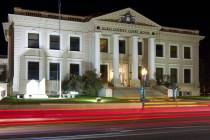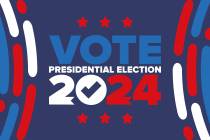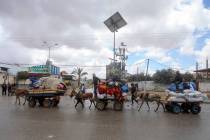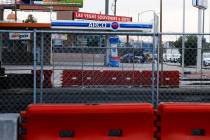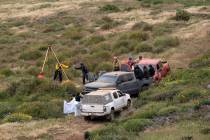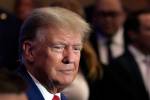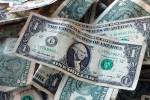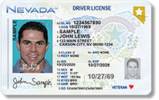Tapes in counterfeiting conspiracy case a real concern for defense
Defense attorney Theodore Cohen ambled across the courtroom like an aging barnyard rooster, his right hand cupped behind his ear in an attempt to improve his hearing.
If only the jurors were as challenged.
Although the recordings played Monday and Tuesday in U.S. District Judge James Mahan's courtroom were at times extremely difficult to comprehend, only Cohen would be able to reasonably deny the sound of defendant Wilson Liu's voice as he attempted to broker a deal for piles of counterfeit $100 bills called "Supernotes" with undercover FBI Special Agent Robert Hamer. I suspect everyone but Cohen heard Liu loudly enough.
As the government's star witness under direct examination by Assistant U.S. Attorney Timothy Vasquez, Hamer has focused on elements illuminated in conversations made convoluted by heavy Taiwanese and Chinese accents and the code words and obfuscation commonly overheard on court-authorized recordings in criminal investigations. Liu insisted that his new business partner "Robert" refer to the counterfeit bills as "jackets," but it's obvious they were conspiring to conduct shady business across international borders.
The jurors, who did their best to plow through the tapes and videos with help from a printed transcript, listened to the criminal conspiracy go down. The counterfeit bills would move from a government-sanctioned printing house in North Korea, through official and unofficial contacts in China, into the hands of Russian associates, and finally to Los Angeles, where Liu and "Robert" would complete their transaction.
Sound hard to believe? It's all there on tape, as projected by Liu and his business partner and criminal co-conspirator, John Wu. (Wu was previously convicted of crimes in connection with the FBI and Secret Service investigation called Operation Smoking Dragon. He has since died in prison.)
Supernotes, according to the indictment, have evolved from simply very good counterfeit bills to fakes of such high quality that Treasury and Secret Service currency experts have great difficulty distinguishing them from the real thing. In a March 23, 2005, meeting at the Ritz-Carlton in Pasadena, Calif., between Liu and Wu and Hamer, the defendant alludes to his connections and to the quality of the material.
"The new one is higher cost," Liu said.
Wu and Liu also try to allay the expressed concerns of their American partner.
"Nobody's gonna rip anybody," Wu said.
"Nobody gonna trick you ... your reputation is good," Liu said. "I have good connection in Asia, 100 percent for sure. ... You will be rich one year, very, very rich."
Liu also expressed concerns for his safety and for a full understanding that they never keep their Russian associates waiting. Wu said Liu was "afraid" of the Russians.
The next day, Hamer wired $25,000 in buy money to a foreign account. On April 7, 2005, Wu returned to the United States and gave the undercover agent 15 counterfeit bills as a sample. On April 13, Wu delivered 136 Supernotes valued at $13,600.
On May 5, a sea-shipping container concealing 6,998 Supernotes -- face value, $699,800 -- arrived at the Port of Long Beach/Los Angeles. On May 12, the bills were delivered to the undercover agent.
Wu, Liu, and Hamer weren't finished conducting business. A cooperating witness also arranged to score Supernotes through the international counterfeiting connection.
With all that damaging testimony, could the government somehow be wrong about the defendants?
In an opening statement on Monday that provided a hair-raising twist, the specter of the CIA entered the legal discussion when the defense referred to another possible source of the mysterious Supernotes. Liu's advocate asked: Could the counterfeit bills, as a Frankfurt, Germany, newspaper has reported, have originated not in North Korea, but in a CIA-sanctioned counterfeiting operation located outside Washington, D.C.?
It seems far-fetched, but until a few years ago, so did the thought that North Korea would go into the counterfeiting business.
Problem is, the tapes are riddled with references to North Korean and Chinese officials and go into some detail. And we haven't even reached the part of the case that finds defendants Liu and wife Teresa at a Las Vegas casino gambling with a supply of counterfeit bills.
With so much recorded conspiracy, and a paper trail that leads all the way to Caesars Palace, Wilson Liu's defense counsel is left with a terrible earache and nothing to crow about, legally speaking.
John L. Smith's column appears Sunday, Tuesday, Wednesday and Friday. E-mail him at Smith@reviewjournal.com or call (702) 383-0295.










